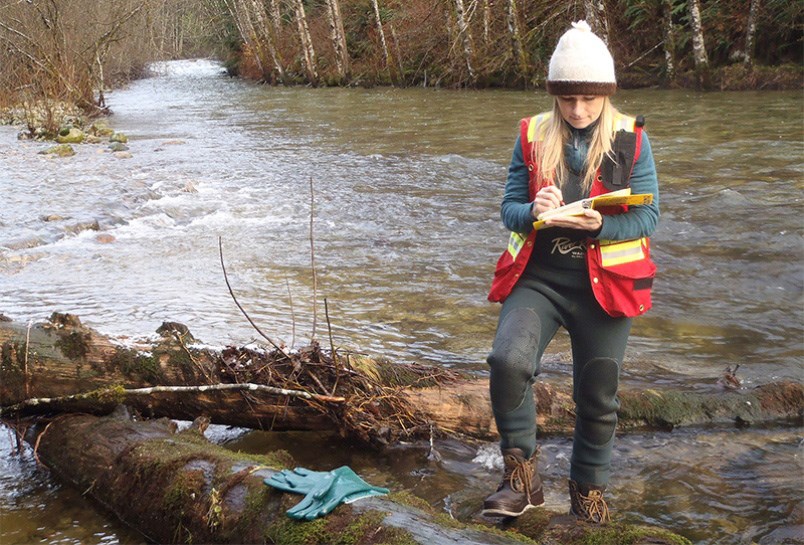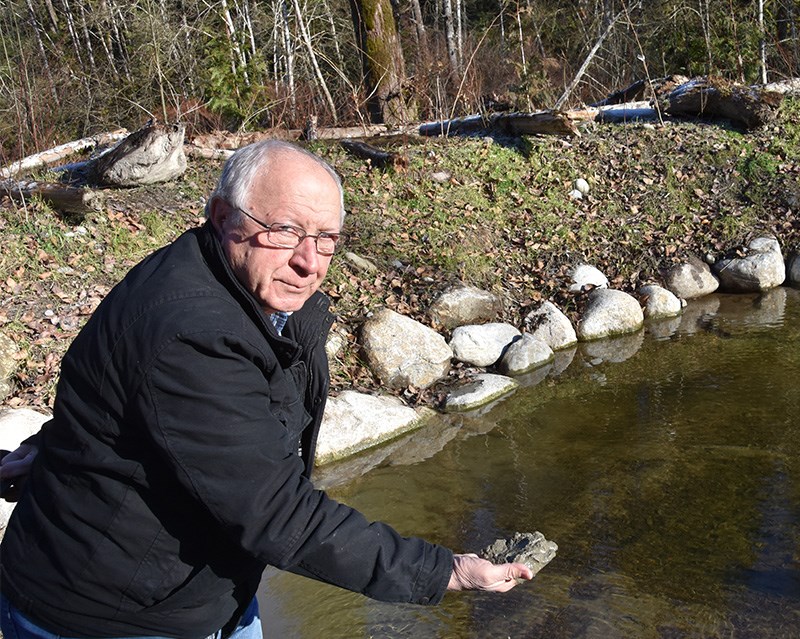Repeated slope failures on hilly terrain off Pipeline Road have sent water and fine silt down a Coquitlam creek wiping out fish habitat restoration work in the river and killing eggs left by spawning salmon.
Fearing another torrential rainstorm could do further damage, the city of Coquitlam is calling on the province to stabilize the area around Fulawka Creek to ensure more of the fine silt isn’t washed into the river.
“We just think it’s really important that they know how important it is to us," said Coun. Chris Wilson, current co-chair of the city’s Environmental Sustainability Committee. "It’s not the ideal time to do some of this work when it’s the rainy season, but we feel it needs to be done.”
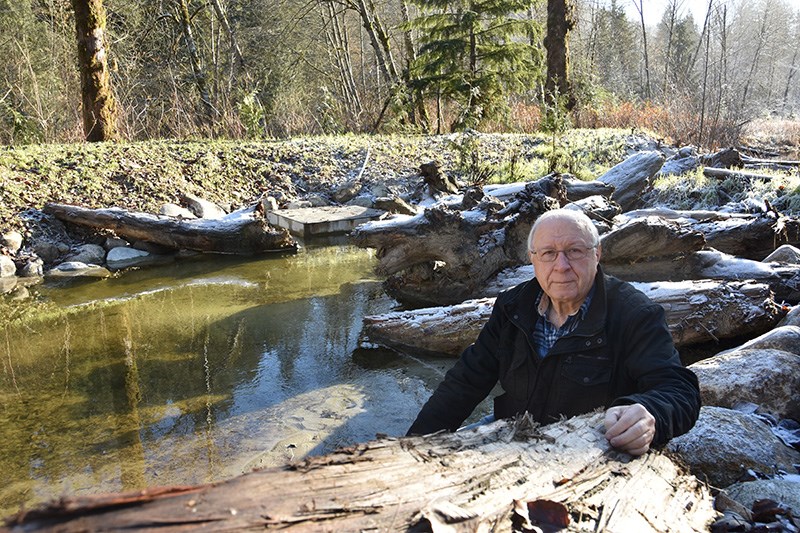
Fine silt has been trickling down Mantle and Fulawka creeks for years, filling up a side channel constructed to create more spawning area for chum, coho, pink and chinook salmon. However, two recent washouts have worsened conditions and appears to have ruined repair work that was done over the summer.
The issue came to a head at the Dec. 3 Coquitlam council meeting when some councillors wondered why a water monitoring program for the Coquitlam River was being suspended at the same time water sampling was revealing high levels of turbidity.
But the city’s environmental projects manager said the two issues are completely separate: five years of data has provided strong baseline data and enough evidence to show the province that landslides on Crown land are causing turbidity [suspended particulates] in the river.
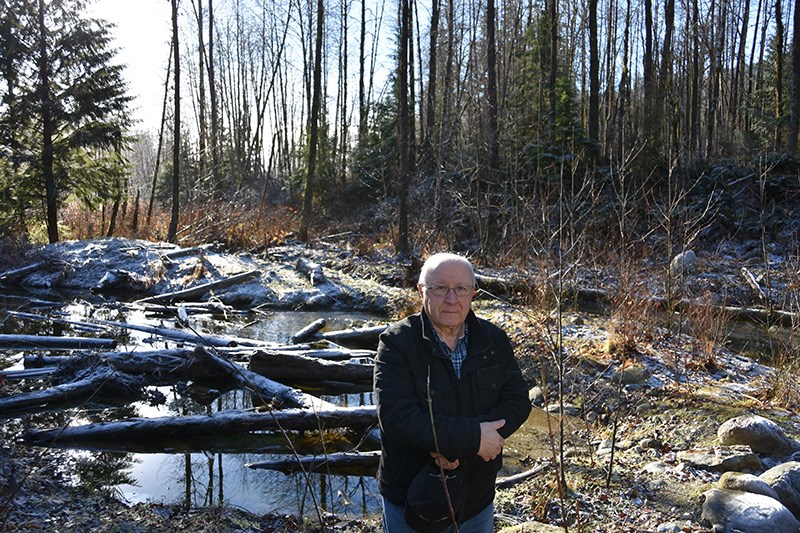
“We have consistent results year over year and we have a high degree of confidence there is good water quality in that river but we don’t want to see it degraded,” environmental projects manager said Verne Kucy, adding that he’s hopeful that by taking a strong stand, council will prod the province into taking action.
The area of the landslides is approximately 2.1 km south of the Coquitlam Dam in the BC Hydro right of way on the mountain side, while the silt from the slides is filling up a side channel of the river created out of a former swamp in Upper Coquitlam River Park.
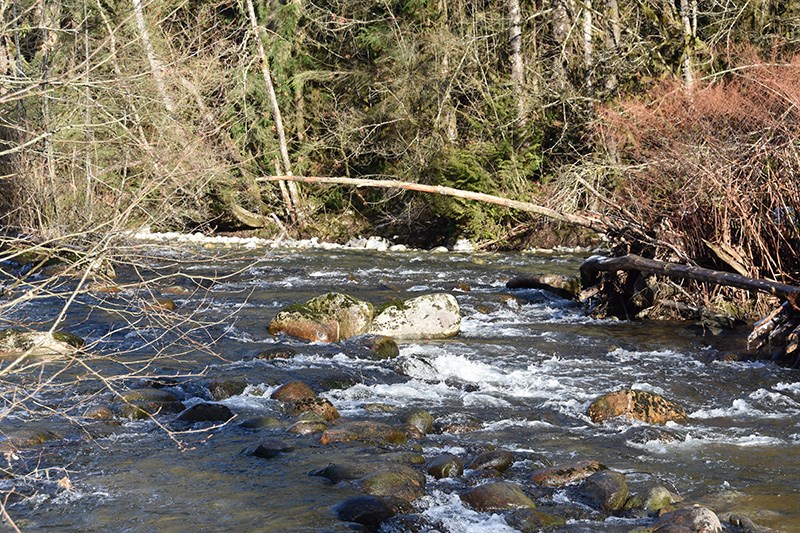
The $100,000 restoration project paid for with funds from BC Hydro’s Fish and Wildlife Compensation Program was done about four years ago and today looks like a natural stream, flushed by water diverted from the Coquitlam River. With gravel, rocks, trees and stumps placed with careful precision, it looks like a series of natural pools and riffles.
But the manmade spawning grounds is gradually being filled up with fine silt.
On a recent tour of the site Tony Matahlija, whose North Fraser Salmon Assistance Program led the most recent $83,000 project to repair the damage from a 2017 landslide, as well as the original restoration project, scooped up a handful of fine sand.
He said the most recent November, 2018 landslide filled up the settlement pond that was specifically created this past summer to stop the silt from flowing into the spawning channel.
Now it’s filled up with silt, which is also starting to encroach into the spawning channel, and will have to be excavated so the pond can work properly.
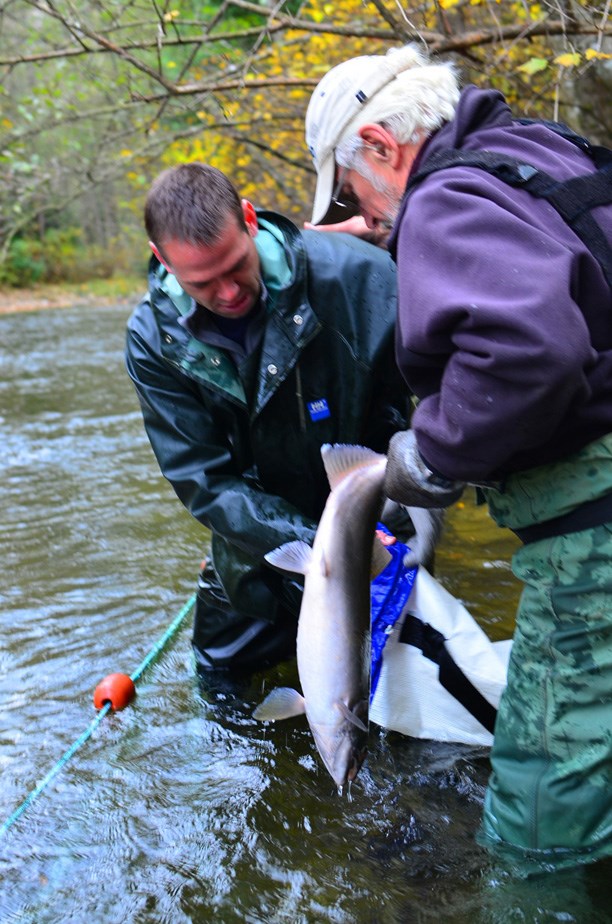
“It’s not a lost battle yet, that’s why we created a settlement pond [but] I was surprised at how quickly the pond was filling.”
He’s also worried there won’t be funds for cleaning up the damaged area if there’s another slide.
In the meantime, the city hopes the province will take action to prevent further slides from encroaching into the river and the side-channel.
“We’re quite confident that putting a bit more pressure on them and due to the fact that this rain happened in November, we should be able to get some action.” Wilson said.
Exactly what caused the February, 2017 and November, 2018 slope failures isn’t known, but likely a combination of land disturbance from a Lafarge Canada reclamation of a closed aggregate site, heavy rains and possibly work from BC Hydro transmission twinning may have contributed, the city said.
As for the suspension of water quality monitoring on the river, the city added there’s no point in doing the work until the slope failure is corrected.
“Until this issue is completely resolved with the province it didn’t make sense doing the monitoring. We might be able to review it next year and if everything is working better and we’re not getting these landslides, we could revisit it,” Wilson said.
